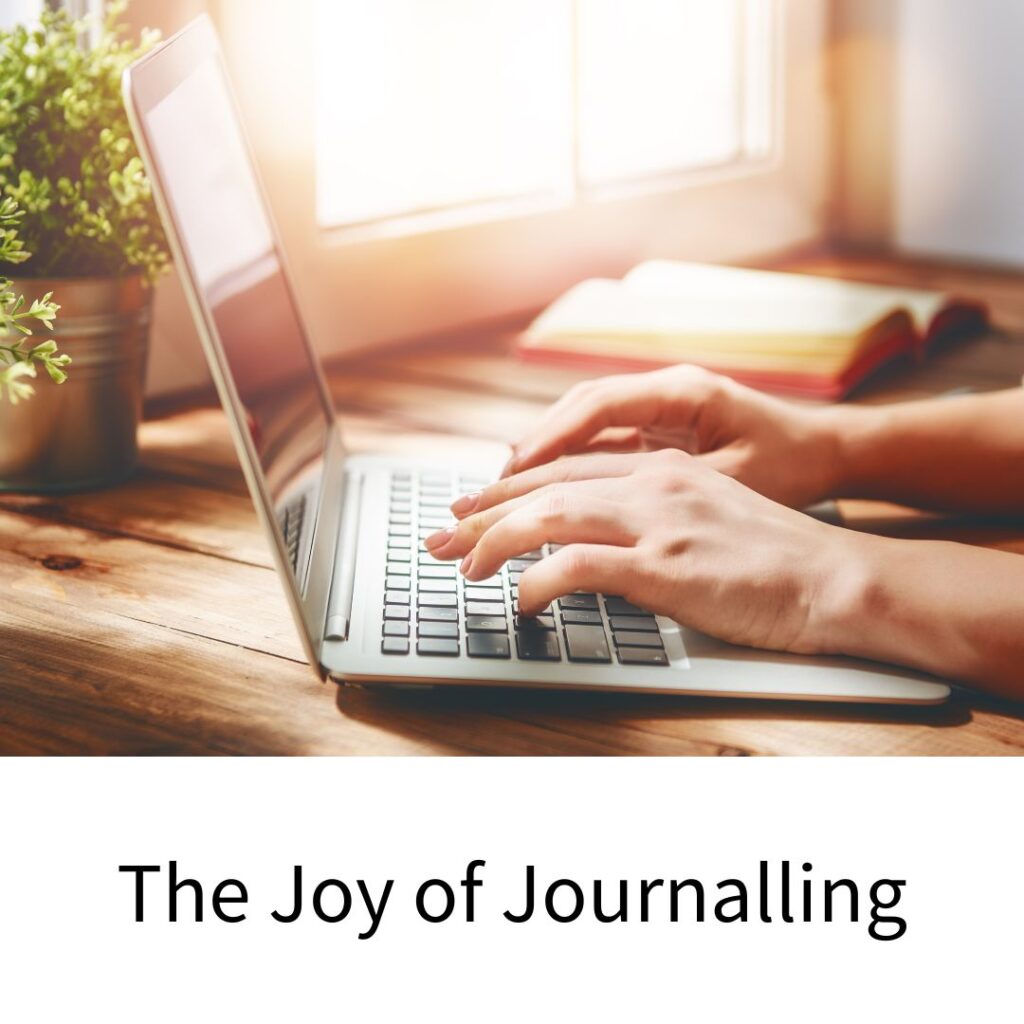I’m a journaller. I mean a big journaller! I’ve been writing for years. I like to keep it simple – open a blank page at the beginning of the year in Microsoft word and type away on my favourite ‘clicky keyboard’. Writing feels like a form of meditation, where I’m very present and writing in the moment.
Why am I telling you this? Well, I love the process so much and I get a huge amount out of allowing myself the opportunity to engage in free-flowing writing that perhaps by sharing my love of this kind of reflecting, it might inspire you to create your own journalling practice.
What is reflecting?
American philosopher and psychologist John Dewey defined it as ‘a process of reflecting on one experience to the next, creating connections between these experiences resulting in a continuity of meaning, which leads to learning’. It’s a skill which can be developed and deepened with practice.
Why reflect?
In short because it’s a form of self-care. Like eating well, getting enough sleep, drinking water, taking exercise, it’s another tool in your toolbox to help look after yourself.
We’re a complex species and reflecting is an opportunity to connect with yourself – what you think, how you feel and how you behave. I use the metaphor of a jigsaw puzzle a lot in counselling and I see reflecting as a way to identify the jigsaw pieces of your life and put them in an order which increasingly makes more sense. It deepens your self-awareness and self-understanding which can bring relief when you feel confused, upset or just desire to make more sense of you and your world.
Giving yourself regular (or even irregular if you’re busy!) focused time and space to reflect, can lead to changes and greater choice in how you go about your personal and professional life.
Forms of reflecting
You can reflect ‘in’ or reflect ‘on’. Reflecting ‘in’ means reflecting in the moment, as something is happening. You might be in conversation with someone and become aware of what’s happening inside you in the moment or you may catch when you’ve been triggered by a piece in the news and you start wondering why you’re experiencing a particular feeling.
The other type of reflection is reflecting ‘on’ and happens after an event. You may choose to write about something specific like how your day was, an argument you’ve had or something that brought a bit of joy into your life.
You may also simply a commit to sitting down and writing about whatever arises in the present moment which can be very illuminating and involve reflecting in and reflecting on.
The kind of reflection I’m writing about here is a solitary venture but of course you can also reflect in the company of people – perhaps in conversation with a friend, in a group, in therapy or supervision which I will cover in a future post.
How to self-reflect
It’s personal preference, but I heartily recommend using a computer if you can type reasonably well. The reason I’m so passionate about this is because I feel you will write with more abandon if you’re confident your journal can’t be read by anyone. You have total privacy to really write what the good, the bad and the ugly and that’s so important. You need to be able to drop the mask.
Handwriting a journal may also mean you’re conscious about writing carefully and we don’t need any self-criticism here! Writing on your computer means you can choose to amend your work if you like it to read well or you can choose to not give a shit and write away, perhaps choosing to do more stream of consciousness writing which you can read about here in which you just write about whatever pops up with no concern about how it reads.
If you find you don’t know what to write about, some journal prompts will help and I’ll pop some in a future post to help you get started but if you’re really stuck, write about that and you’ll be surprised how quickly your writing starts to flow!
Try not to self-censor, and this is where a password protected file is very useful to enable you to have trust that what you write cannot be read by anyone else, (I will entrust a loved one to delete all my journals when I die!) but allow your mind to go wherever it takes you – like being on a journey without knowing the destination!
Once you’ve finished writing, leave it for a few days and then go back and re-read what you’ve written and see if anything else pops up for you – sort of reflecting on your reflecting!
Benefits of reflecting
One benefit of using journalling as part of your self-care practice is as a way of getting out, that which is inside. A bit like releasing the valve on a pressure cooker or the air out of a balloon. It can be like taking a giant outbreath……. a sense of release and relief.
Sometimes there are lightbulb moments which can be exciting, but more often it’s about the ‘marginal gains’, which James Clear talks about in his book Atomic Habits, the small improvements you might choose to make on the basis of your growing self-awareness, which will accumulate over time.
Overall, the benefits to reflecting are in your ever growing and deepening awareness of who you are and how you tick and to relieve some of the pressure from our increasingly stressful lives.
If you give it a go and would like to share how you’re finding it, email donnagibson@thebridgecounsellingservice.co.uk or comment below.

